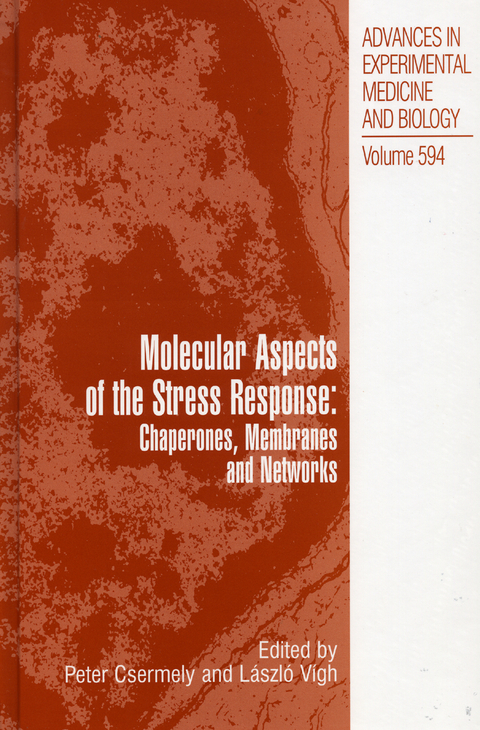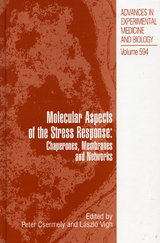Molecular Aspects of the Stress Response: Chaperones, Membranes and Networks
Springer-Verlag New York Inc.
978-0-387-39974-4 (ISBN)
Protein Misassembly.- The Cellular “Networking” of Mammalian Hsp27 and Its Functions in the Control of Protein Folding, Redox State and Apoptosis.- Molecular Interaction Network of the Hsp90 Chaperone System.- Organization of the Functions and Components of the Endoplasmic Reticulum.- Molecular Crime and Cellular Punishment.- Chaperones as Parts of Cellular Networks.- Chaperones as Parts of Organelle Networks.- Heat Shock Factor 1 as a Coordinator of Stress and Developmental Pathways.- Chaperone Regulation of the Heat Shock Protein Response.- Mechanisms of Activation and Regulation of the Heat Shock-Sensitive Signaling Pathways.- Membrane-Regulated Stress Response.- Beyond the Lipid Hypothesis.- Trehalose As a “Chemical Chaperone”.- Chaperones As Part of Immune Networks.- The Stress of Misfolded Proteins.- Hsp90 and Developmental Networks.
| Reihe/Serie | Advances in Experimental Medicine and Biology ; 594 |
|---|---|
| Zusatzinfo | 1 Illustrations, color; 54 Illustrations, black and white; XVIII, 201 p. 55 illus., 1 illus. in color. |
| Verlagsort | New York, NY |
| Sprache | englisch |
| Maße | 155 x 235 mm |
| Themenwelt | Naturwissenschaften ► Biologie ► Biochemie |
| Naturwissenschaften ► Biologie ► Genetik / Molekularbiologie | |
| ISBN-10 | 0-387-39974-7 / 0387399747 |
| ISBN-13 | 978-0-387-39974-4 / 9780387399744 |
| Zustand | Neuware |
| Haben Sie eine Frage zum Produkt? |
aus dem Bereich




